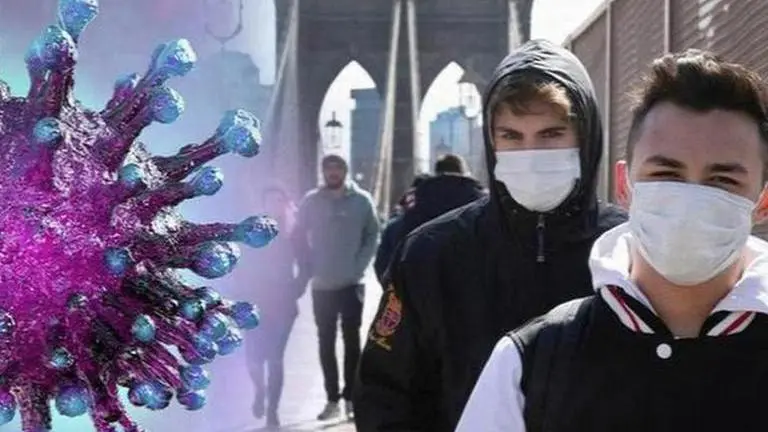Updated 7 January 2022 at 19:12 IST
Flurona: ‘No specific treatment or vaccine’, say US health experts on new co-infection
US’ Texas Children’s Hospital this week announced that a child was confirmed to be infected with influenza A and SARS-CoV-2, the virus that causes COVID-19
- World News
- 3 min read

US’ Texas Children’s Hospital this week announced that a child was confirmed to be infected with influenza A and SARS-CoV-2, the virus that causes COVID-19. The so-called ‘flurona’ patient in the United States was not hospitalised and was reportedly recovering at home. While no other details were mentioned, the case at Texas Children’s hospital came a few days after Isreal confirmed the first case of ‘flurona’ in an unvaccinated pregnant woman at the Beilinson Hospital.
Amid the drastic spread of the Omicron variant, USA Today stated that health experts are expecting to register more “flurona” cases as both flu and the Coronavirus cases are rising. It is to note that ‘flurona’ cases this month are not the first instance of recording co-infections of the flu and COVID-19, or other viruses.
What is ‘flurona’?
‘Flurona’ derived from the combination of words ‘flu’ and ‘Corona’ is a co-infection of COVID-19 and the respiratory syncytial virus or the RSV. While confirming the case in Texas, Dr. Jim Versalovic, pathologist-in-chief and COVID-19 command centre co-leader at the hospital, told reporters Monday, “This is one confirmed case and, of course, we’ll be working with our colleagues across the country to see if there are more cases and whether we will see a distinct pattern in these cases”, according to USA Today. Versalovic reportedly also said that dozens of children with co-infections required hospitalisation.
Is there a specific treatment for ‘flurona’?
While health experts are scrambling efforts to determine a pattern of co-infections, it is to note that there is no specific treatment or vaccine for RSV. Hence, experts, as per USA Today, speculate that children with “flurona” might experience better outcomes. Another expert, Dr Frank Esper, a physician at the Cleveland Clinic Children’s Center for Pediatric Infectious Diseases was quoted by a media outlet as saying, “I expect to see plenty of co-infections (of flu and COVID-19) going forward, but I don’t see anything that suggests it makes COVID infections worse.”
Advertisement
Esper added, “Those are two viral pathogens that we actually have medicines for.” In addition to the lifesaving vaccines that prevent severe illness, Esper said that health care providers are geared up to treat the infections simultaneously with Tamiflu and Remdesivir. Even though immunised people are vulnerable to these infections, co-infections are more likely to occur in young children, according to experts as their immune system is still unfamiliar with many common viruses.
USA Today further quoted Esper as saying, “Hands down, the No. 1 predisposition for having more than one virus at the same time is your age, and it’s really children under 5…They all have virus running rampant and swap them like trading cards.”
Is 'flurona' more severe?
Esper has also said that cold viruses most commonly make up co-infection cases. Even though co-infections involving RSV are rare, health experts are reportedly expecting to record more cases of “flurona” in the United States. It is still unclear if ‘flurona’ causes more severe illness but Americans are presently being advised to get vaccinated against both viruses at the earliest.
Advertisement
Image: AP/Shutterstock
Published By : Aanchal Nigam
Published On: 7 January 2022 at 19:12 IST
